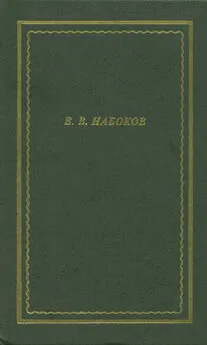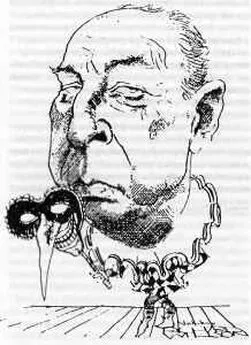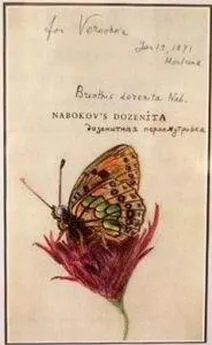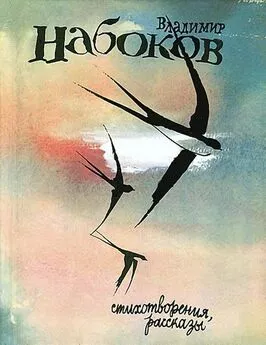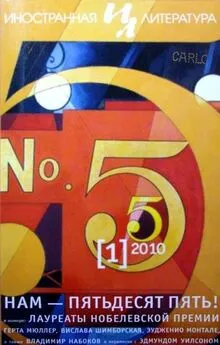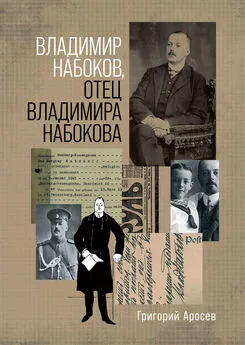Владимир Набоков - Стихотворения
- Название:Стихотворения
- Автор:
- Жанр:
- Издательство:Академический проект
- Год:2002
- Город:СПб.
- ISBN:5-7331-0160-1
- Рейтинг:
- Избранное:Добавить в избранное
-
Отзывы:
-
Ваша оценка:
Владимир Набоков - Стихотворения краткое содержание
Наиболее полное из всех до сих пор изданных в России собраний поэтических произведений крупнейшего русского/американского писателя XX века. В связи с уникальной спецификой двуязычного творчества Набокова в книге публикуются также его стихи, написанные на английском языке, и поэтические переводы на английский язык классических текстов русской поэзии (Пушкин, Лермонтов, Фет, Тютчев, Ходасевич). Публикуется также ряд переводов на французский язык и стихотворения из романов.
Стихотворения - читать онлайн бесплатно полную версию (весь текст целиком)
Интервал:
Закладка:
I am not amused by miserable daubers
who make a mess of Raphael's Madonna;
I am not amused by despicable zanies
whose parodies dishonor Alighieri.
Be off, old man.
you'll drink my health.
It seems to me, Salieri,
You're out of sorts to-day. I'll come to see you
some other time.
a trifle. My insomnia last night
was troubling me, and one or two ideas
entered my head. Today I dashed them down.
I wanted your opinion; but just now
you're in no mood for me.
When is my mood averse to you? Sit down.
I'm listening.
Whom shall we say?… well, let's suppose myself
a little younger — and in love — not deeply,
but just a little — sitting with a damsel
or with a bosom friend — yourself, let's say —
I am merry.... All at once: a ghostly vision,
a sudden gloom, or something of the sort....
Well, this is how it goes.
and you could stop to linger at a tavern
and listen to a blind man with a fiddle!
Ah, Mozart, you are unworthy of yourself.
What daring and what grace! Why, you're a god,
and do not know it; but I know, I know.
is getting to be hungry.
Let's dine together at the Golden Lion.
go home a moment: I must tell my wife
she's not to wait for me.
— Nay, now can I no longer fight with fate:
my destiny's to stop him — else we perish,
we all, the priests, the ministers of music,
not I alone with my dull-sounding fame....
What worth are we if Mozart lives and reaches
new summits still? Will this exalt our art?
Nay: art will sink so soon as he departs:
he will leave us no successor — will have served
no useful purpose. Like a seraph swooping,
he brought us certain songs from Paradise,
only to stab us, children of the dust,
with helpless wingless longing, and fly off!
— So fly away! — the sooner now, the better.
Here's poison: the last gift of my Isora.
For eighteen years I've kept it, let it season —
and often life would seem to me a wound
too bitter to be borne — I have often sat
with some unwary enemy at table,
yet never did that inward whisper win me;
though I'm no coward and feel insult deeply,
and care not much for life. Still did I tarry,
tormented by the thirst for death, yet brooding:
why should I die? Perchance the future yet
holds unexpected benefits; perchance
I may be visited by Orphic rapture,
my night of inspiration and creation;
perchance another Haydn may achieve
some great new thing — and I shall live in him…
While I was feasting with some hated guest,
perchance, I'd muse, I'll find an enemy
more hateful still; perchance a sharper insult
may come to blast me from a prouder eminence
— then you will not be lost, Isora's gift!
And I was right! At last I have encountered
my perfect enemy: another Haydn
has made me taste divine delight!. The hour
draws nigh at last. Most sacred gift of love:
You'll pass to-night into the cup of friendship.
The dinner's good, the wine is excellent,
but you, you frown and brood.
I'm worried about my Requiem.
a Requiem? Since when?
But the queer part… didn't I tell you?
three weeks ago I got home rather late —
they told me someone had been there to see me.
All night — I know not why — I lay and wondered
who it could be and what he wanted of me.
Next day the same thing happened: the man came;
I was not in. The third day — I was playing
upon the carpet with my little boy —
there came a knock: they called me, and I went;
a man, black-coated, with a courteous bow,
ordered a Requiem and disappeared.
So I sat down at once and started writing.
Now from that day to this my man in black
has never come again. — Not that I mind.
I hate the thought of parting with my work,
though now it's done. Yet in the meantime I…
He never leaves me day or night. He follows
behind me like a shadow. Even now
I seem to see him sitting here with us,
making a third.
Dispel these hollow fancies, Beaumarchais
was wont to say to me: «Look here, old friend,
when black thoughts trouble you, uncork a bottle
of bright champagne, or reread „Figaro“».
of course — you wrote «Tarare» for Beaumarchais.
A splendid piece — especially one tune —
I always find I hum it when I'm gay:
ta-tá, ta-tá… Salieri, was it true
that Beaumarchais once poisoned someone?
I doubt it. He was much too droll a fellow
for such a trade.
like you and me. And villainy and genius
are two things that don't go together, do they?
Drink your wine.
here's to the frank and loyal brotherhood
of Mozart and Salieri, sons of Music.
I've eaten.
Listen to this, Salieri:
my Requiem.
Are you weeping?
I've never shed before — painful yet anodyne,
as if I had discharged a heavy debt,
as if the surgeon's knife had lopped away
a sick and throbbing limb! These tears, dear Mozart…
You must not mind them. Oh, play on, make haste,
flooding my soul with sound…
like you the force of harmony! But no;
the world would crumble then; for none would care
to bother with the baser needs of life;
then all would seek art's franchise. We are few,
the chosen ones, the happy idlers, we
who have no use for what is merely useful,
who worship only beauty — do we not,
dear friend? — But I'm not well — some leaden languor…
I must have sleep. Adieu!
Your sleep will be a long one, Mozart! — Nay,
it cannot be that what he said was true,
and I no genius. «Villainy and genius,
two things that do not go together». Wait:
that's false — for surely there was Buonarroti.
— Or is that but a legend, but a lie,
bred by the stupid mob, by their inane
vulgarity, and that great soul who wrought
the Vatican had never sunk to murder?
440. EXEGI MONUMENTUM {*}
«No hands have wrought my monument; no weeds
will hide nation's footpath to its site.
Tsar Alexander's column it exceeds
in splendid insubmissive height.
«Not all of me is dust. Within my song,
safe from the worm, my spirit will survive,
and my sublunar fame will dwell as long
as there is one last bard alive.
«Throughout great Rus' my echoes will extend,
and all will name me, all tongues in her use:
the Slavs' proud heir, the Finn, the Kalmuk, friend
of steppes, the yet untamed Tunguz.
«And to the people long shall I be dear
because kind feelings did my lyre extoll,
invoking freedom in an age of fear,
and mercy for the broken soul».
Obey thy God, and never mind, О Muse,
the laurels or the stings: make it thy rule
to be unstirred by praise as by abuse,
and do not contradict the fool.
441. THE UPAS TREE {*}
Deep in the desert's misery,
far in the fury of the sand,
there stands the awesome Upas Tree
lone watchman of a lifeless land.
The wilderness, a world of thirst,
in wroth engendered it and filled
its every root, every accursed
grey leafstalk with a sap that killed.
Dissolving on the midday sun
the poison oozes through its bark,
and freezing when the day is done
gleams thick and gem-like in the dark.
No bird flies near, no tiger creeps;
alone the whirlwind, wild and black,
assails the tree of death and sweeps
away with death upon its back.
Интервал:
Закладка:
